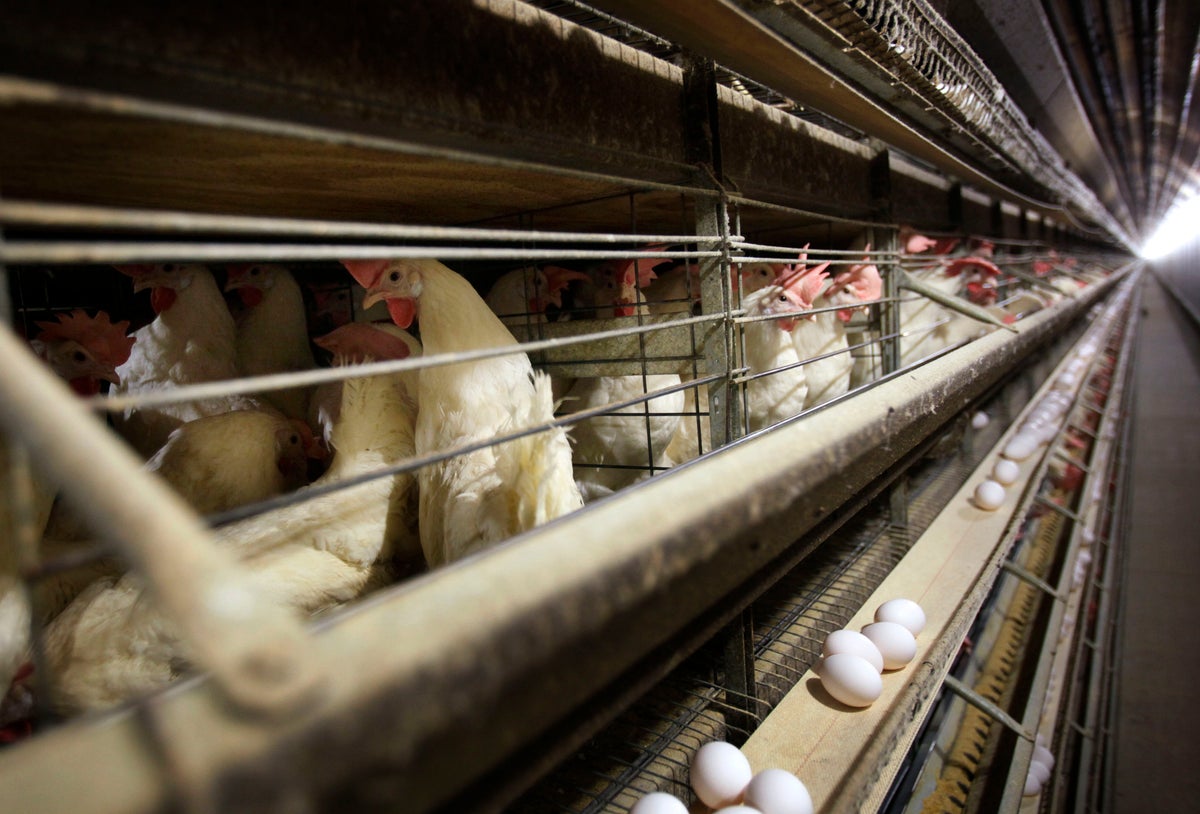
A federal jury in Illinois ordered $17.7 million in damages — an amount tripled to more than $53 million under federal law — to several food manufacturing companies who had sued major egg producers over a conspiracy to limit the egg supply in the U.S.
The jury ruled last week that the egg producers used various means to limit the domestic supply of eggs to increase the price of products during the 2000s. The time frame of the conspiracy was an issue throughout the case; jurors ultimately determined damages occurred between 2004 and 2008.
The damages verdict was reached Friday in the Northern District of Illinois. According to federal antitrust law, the damages are automatically tripled, bringing the total to over $53 million. Court documents on the verdict were not readily available Friday evening, but statements from the manufacturers' attorney and one of the egg producers confirmed a total of about $17.7 million.
“We are extremely grateful for the jury’s service and findings,” Brandon Fox, an attorney representing the food manufacturers, said in a statement. “This was an important case for many reasons, and the jury’s award recognizes its significance.”
Attorneys for the four egg suppliers named in the lawsuit did not immediately return phone messages on Friday. Court documents show the defendants have denied the claims.
The egg suppliers include the family company of its former Chair John Rust, who's running for the U.S. Senate in Indiana. In a written statement on the verdict, Rust said the jury's decision “will be appealed.”
The jury found that the egg suppliers exported eggs abroad to reduce the overall supply in the domestic market, as well as limited the number of chickens through means including cage space, early slaughter and flock reduction, court documents say.
Jurors were specifically told not to consider more recent changes in egg pricing during their deliberations.
Food manufacturers joining as plaintiffs in the lawsuit against the egg producers are Kraft Foods Global, Inc., The Kellogg Company, General Mills, Inc. and Nestle USA, Inc. The jury found the egg suppliers who participated in the conspiracy were Cal-Maine Foods, Inc., United Egg Producers, Inc., United States Egg Marketers, Inc. and Rose Acre Farms, Inc., a southern Indiana-based company previously chaired by Rust.
Rose Acre Farms, which identifies itself as the second-largest egg producer in the U.S., disagreed with the jury's verdict in a written statement.
“Rose Acre has and continues to steadfastly deny being part of any anticompetitive egg price-fixing conspiracy, and we will continue to explore and consider all legal options, including post-trial relief and appeal,” the statement said.
Cal-Maine Foods, Inc. said in a written statement it has petitioned the court to rule in its favor and will continue to evaluate its options, “including, if necessary, an appeal.”
“Cal-Maine Foods respects the jury’s decision and appreciates that the damages awarded by the jury are relatively modest compared to the damages sought but remains disappointed with the verdict as Cal-Maine Foods continues to believe that the Company did nothing wrong,” the statement said.
Email messages sent to the United Egg Producers and United States Egg Marketers representatives were not immediately returned Friday.
In his statement, Rust attacked his opponent U.S. Rep. Jim Banks, saying he has sided with “mega corporations over the American farmer” in the aftermath of the jury's ruling.
“Voters can be certain that, if elected, Banks will bring his anti-agriculture and pro-mega corporation platform to the chamber,” Rust said.
In response, Banks said in a written statement, "Hoosiers aren’t going to vote for a crook.”
Rust is currently suing Indiana’s Secretary of State over a contested state law that could prevent his name from getting on the primary ballot as a Republican candidate. According to the law, a candidate must vote in two primaries with the party they are affiliated with or the county party chair must approve their candidacy. Rust has argued the law is unconstitutional and vague.
Rust faces an uphill battle for the GOP nomination: Banks has received the endorsement of the Indiana Republican Party and former President Donald Trump. The seat is currently held by Republican Mike Braun, who is instead running for governor next year.







